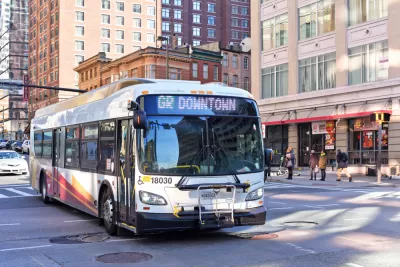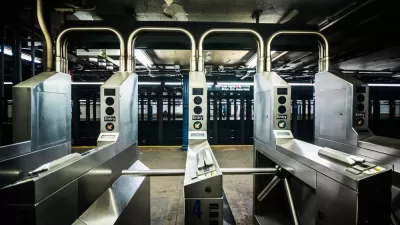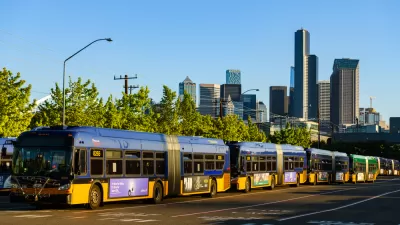If signed by the governor, the act will halt a scheduled fare increase previously tied to inflation.

New legislation passed by the Maryland General Assembly would prevent a scheduled fare increase for riders on the Maryland Transit Administration (MTA) system. Alex Holt describes the law, which heads to Governor Wes Moore’s desk, in Greater Greater Washington.
The Fair Fares Act, passed by the General Assembly on April 5, “uncouples MTA fares from the requirement that they increase with inflation, as measured by the Consumer Price Index” and “gives the MTA the authority to alter fares, including raising them, as it sees fit — albeit with some conditions, namely first giving public notice and holding a public hearing before making any fare changes.”
Del. Mark Edelson (D-Baltimore City), who introduced the House bill, said stopping the fare increases raised equity concerns for the majority of MTA riders who depend on transit. “[F]or us to increase fares on these riders, at a time when inflation is already significantly ahead of wage increases, is going to hit them in a terrible way and it’s completely inconsistent with our values of helping lift folks up out of poverty and creating a more reliable transit system that serves everybody.”
Holt explains, “Even if it isn’t quite as dramatic as DC’s fare-free transit proposal, the bill at least starts the conversation about what it might take to get closer to that. It also fuels the discussion about how to fund public transit going forward, and about allowing MTA to follow national trends by experimenting with more flexible pricing arrangements based on factors like income, like the program the Massachusetts Bay Transportation Authority just adopted.”
FULL STORY: Fair Fares Act expected to give MTA riders relief

Study: Maui’s Plan to Convert Vacation Rentals to Long-Term Housing Could Cause Nearly $1 Billion Economic Loss
The plan would reduce visitor accommodation by 25,% resulting in 1,900 jobs lost.

North Texas Transit Leaders Tout Benefits of TOD for Growing Region
At a summit focused on transit-oriented development, policymakers discussed how North Texas’ expanded light rail system can serve as a tool for economic growth.

Why Should We Subsidize Public Transportation?
Many public transit agencies face financial stress due to rising costs, declining fare revenue, and declining subsidies. Transit advocates must provide a strong business case for increasing public transit funding.

A Visual Celebration of Manhattan’s Chinatown Elder Community, Through Food
Lanterns, cafeteria trays, and community connection take center stage in this stunning photo essay.

How to Make US Trains Faster
Changes to boarding platforms and a switch to electric trains could improve U.S. passenger rail service without the added cost of high-speed rail.

Columbia’s Revitalized ‘Loop’ Is a Hub for Local Entrepreneurs
A focus on small businesses is helping a commercial corridor in Columbia, Missouri thrive.
Urban Design for Planners 1: Software Tools
This six-course series explores essential urban design concepts using open source software and equips planners with the tools they need to participate fully in the urban design process.
Planning for Universal Design
Learn the tools for implementing Universal Design in planning regulations.
City of Santa Clarita
Ascent Environmental
Institute for Housing and Urban Development Studies (IHS)
City of Grandview
Harvard GSD Executive Education
Toledo-Lucas County Plan Commissions
Salt Lake City
NYU Wagner Graduate School of Public Service





























